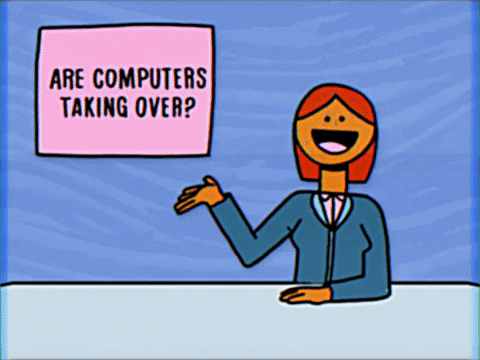CW: This next bit is about AI. Please take care of yourself. You don't have to read this. Your wellbeing is much more important than this stuff anyways.
Is it just me or have institutions been changing their sense of speed to match that of what a machine-learning AI would be?
The world around us have been fear mongering and warning us that "AI isn’t the future, it’s the present."
And as AI becomes more prevalent in our daily lives, it has influenced our expectations and standards for ourselves and how productive we need to be.
Do those ‘not enough’ intrusive thoughts show up for you?
It's definitely been biting me this entire year and I'm so sick of it.
Collectively, it's being felt and it's a lot on our nervous systems, on our communities, and on the way we operate in our daily routines.
It's like adjusting to a pandemic with permanence, coming in fast at us.
This reminds me of the same intense charge race and yt supremacy has on us, and all the other -isms have on the oppressed.
When it comes to this charge, we tend to override and not look at the impulse, or flight responses our body has tempered for us.
Our bodies KNOW what this is.
As a therapist, my role is to support and protect our nervous systems (think of it as leaning into our experiential wisdom and presence as we move through the world). And embracing our humanity.
We need to listen to the artists and humans when working with AI. We need to center in our humanity and protect our communities.
We need to remember what is indispensable about you.
That is what will save us.
If you are in need of a few moments, please stay here and tune into your body. Your breath. The speed of you reading and taking this in. Slow down. Literally go take a break if you feel compelled to.
Play around with your tone of voice as you repeat these words with every inhale. If you're more of a visual person, try imagining an image of each of these mantras… here it goes…
I am not a machine.
PAUSE.
My humanity is vital for life on Earth.
PAUSE.
I am not replaceable.
PAUSE.
I am indispensable.
PAUSE.
I am enough just as I am.
PAUSE.
I have ancestral wisdom.
PAUSE.
I am part of creation itself.
PAUSE. And exhale………
How is your body doing?
Can you orient to something supportive around you?
Let's go with that…










